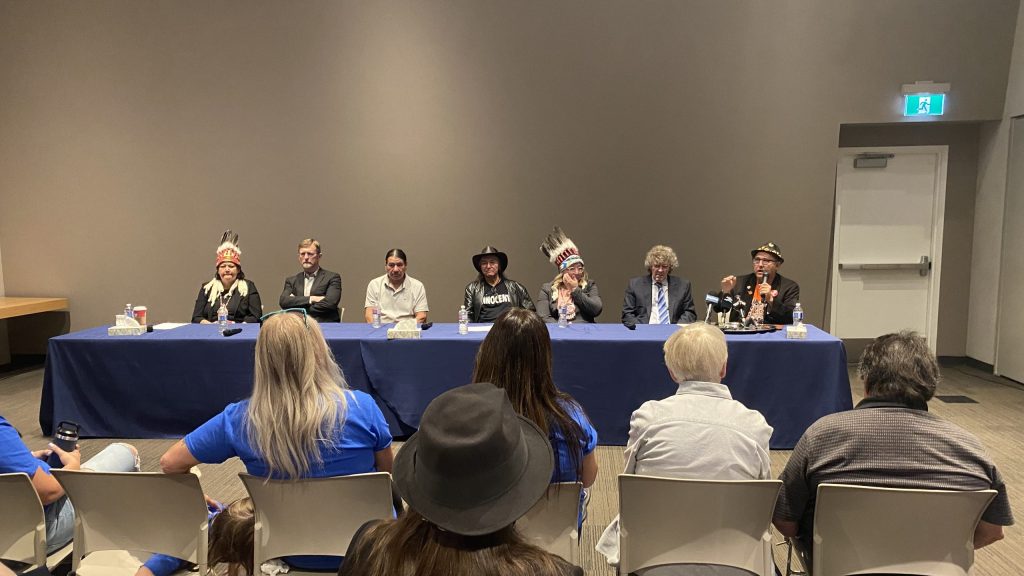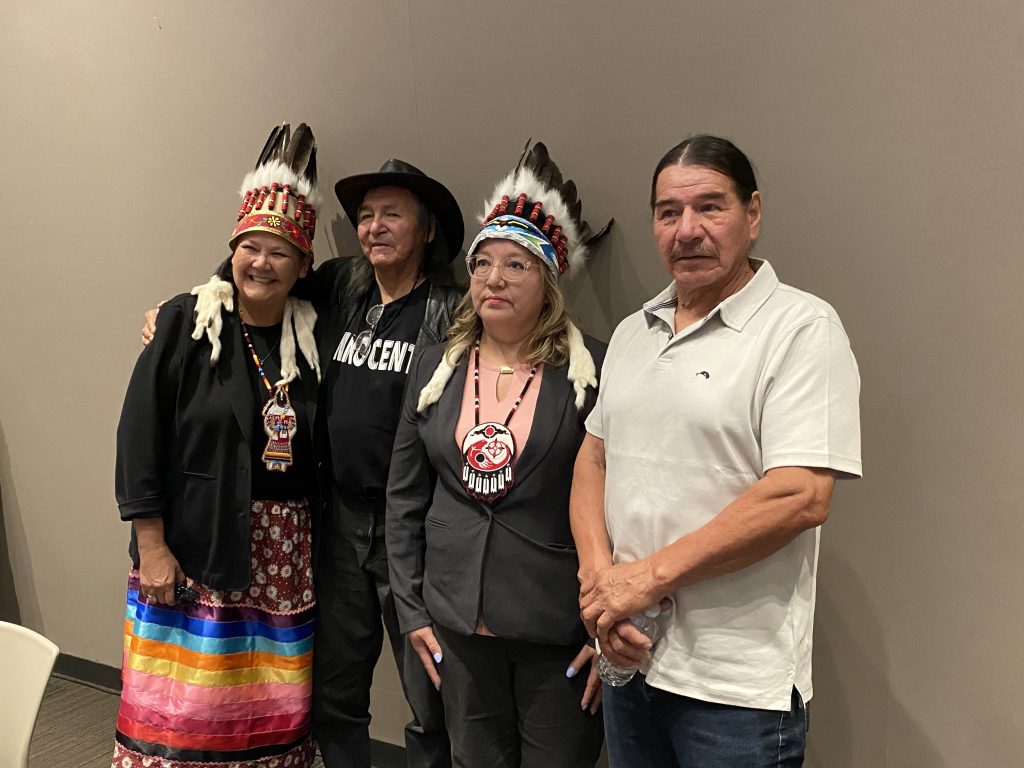Indigenous leaders claim other convictions used systemic racism after two men were acquitted of 1973 murder

Posted July 19, 2023 3:05 pm.
Last Updated July 19, 2023 10:12 pm.
Two Indigenous men were acquitted by a Manitoba judge Tuesday for murder charges dating back 50 years.
Now, Indigenous leaders and advocates are speaking out to raise awareness of other cases where they say systemic racism played a role in the convictions.
Brian Anderson and Allan John Woodhouse were wrongfully convicted of killing Ting Fong Chan in 1973. Both men, from Pinaymootang First Nation north of Winnipeg, have fought to clear their names for the past five decades.

Left to right: Brian Anderson, Allan John Woodhouse. (Photo Credit: Alex Karpa, CityNews)
“We wasted our time behind bars for things we didn’t do. We have to stop that,” said Anderson.
Both convictions were largely based on a signed confession given by Anderson to police, but the men’s lawyers said Anderson did not know what he was signing because English was not his first language, and say police used physical violence and threats to obtain confessions.
“If you know of anybody that’s being locked up right now, to give them hope. Tell them to reach out. There’s help out there,” said Anderson.
Woodhouse, who served 23 years in jail, and Anderson, who served 10, both say it’s important for them to help others are in the same position they were.
“There’s so many of them, you can’t help all of them. I have met a lot of people who told me they have nothing to do with the crime that they are sitting in prison for,” explained Woodhouse.
Chief Cindy Woodhouse is calling for systemic changes in Canada’s judicial system.
“Racial discrimination in these cases was blatant and it aggravated the vulnerability of Mr. Anderson and Mr. Woodhouse by making them targets of professional misconduct, bad faith, and negligence,” said Chief Woodhouse.
Kim Beaudin, Vice-Chief of the Congress of Aboriginal Peoples, says there is a lot of work ahead to make real change.
“The purpose of today is to address the systemic racism within the system itself, but also to reach out to people, particularly Indigenous people, who are tied up in the system, who shouldn’t be there,” said Beaudin.

Left to right: Grand Chief Cathy Merrick, Allan John Woodhouse, Chief Cindy Woodhouse, Brian Anderson. (Photo Credit: Alex Karpa, CityNews)
Grand Chief Cathy Merrick says is calling for an inquiry to address instances where systemic racism played a part in convictions.
“The AMC (Assembly of Manitoba Chiefs) adds its voice to the call for the Manitoba government to conduct a thorough review of all murdered convictions of First Nations citizens. This inquiry must address instances where systemic racism played a part in the conviction,” said Grand Chief Merrick.
Merrick’s statement was echoed by the Southern Chiefs’ Organization (SCO) which said in a statement they are “extremely concerned, and saddened, regarding the injustice inflicted” on both men.
“The sad truth is that First Nation peoples are disproportionately represented in the criminal justice system due to ongoing systemic racism and discrimination. SCO continues to work towards ensuring we have a fair, equitable, and culturally relevant justice system,” the statement continued.
The lives of First Nation citizens matter. It is tragic that Mr. Anderson and Mr. Woodhouse were forcibly separated from their families and communities, spending a significant portion of their lives unjustly incarcerated,” shared Grand Chief Daniels.
“Both the police service and the Crown failed innocent people in this case. While I am pleased the two men have received an apology from the attorney general of Manitoba, there is so much more that needs to be done to compensate them and to prevent similar injustices from happening to any other First Nation person.”
Lawyer James Lockyer from Innocence Canada, who represented the men, is hoping this case becomes a turning point for others who have been wrongfully convicted.
“Their case is a national story. It’s in the national consciousness. I think the people of our whole nation will be supportive,” said Lockyer.
Lawyer Jerome Kennedy says in addition to raising awareness, they’re seeking compensation for both Anderson and Woodhouse.
“Nothing can give them back the last 50 years, as Cindy (Woodhouse) said though what can be done, the governments can at least help three or four decades comfortable and certainly for their families.”








